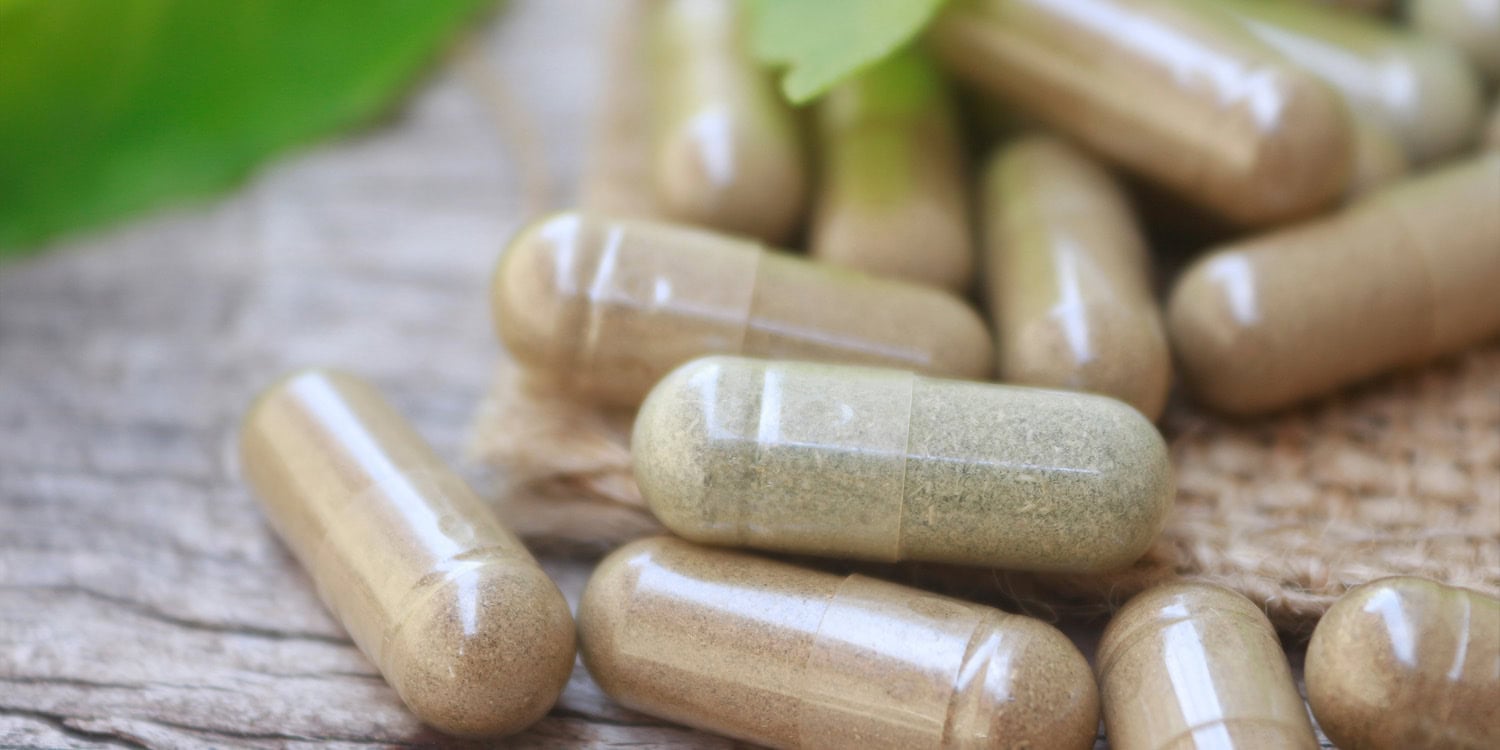A new study published in Nutritional Neuroscience has investigated whether a daily herbal supplement made from extracts of two traditional medicinal plants can boost brain function in healthy adults. Over a four-week period, participants taking the supplement showed improvements in their cognitive test scores; however, these gains were similar to those observed in individuals taking a placebo. The study also found that the supplement was safe and well tolerated, with no significant changes in blood markers or serious side effects reported.
Acacia catechu is a type of tree native to parts of Asia that has been used for centuries in traditional medicine. The heartwood of this tree is rich in polyphenols, which are natural compounds that help protect cells from damage caused by free radicals. These polyphenols, including compounds like catechins, are known for their antioxidant and anti-inflammatory properties. Because of these benefits, extracts from Acacia catechu have been explored for their potential to support overall health and protect nerve cells.
Scutellaria baicalensis, commonly known as Chinese skullcap, is a flowering plant long used in traditional Chinese medicine. This plant’s roots and stems also contain high levels of polyphenols, such as baicalin, which exhibit antioxidant and anti-inflammatory effects. The polyphenols found in Scutellaria baicalensis are thought to help shield brain cells from oxidative stress and inflammation, which are factors that can negatively impact cognitive function.
The motivation behind the study was to investigate if combining these two herbal extracts could offer a safe and natural way to support brain health. As people age, even healthy individuals can experience slight declines in cognitive abilities like memory, focus, and information processing. Previous research, particularly in animal studies, suggested that the flavonoids in these plants might protect the brain against damage caused by stress and inflammation.
With the idea that natural substances might help to maintain or improve cognitive performance before more noticeable declines occur, the researchers designed a study to test whether a blend of Acacia catechu and Scutellaria baicalensis could have positive effects on thinking and memory in healthy adults.
“Our lab primarily focuses on nutritional supplements and exercise performance, but we’re always eager to explore new frontiers,” said study author Joesi Morey, the research coordinator for the Exercise and Performance Nutrition Laboratory (EPNL) at Lindenwood University.
“This project was a perfect opportunity to do just that. While polyphenols have shown various health benefits, the impact of this specific herbal extract combination on cognition was largely unexplored. It’s an area with huge potential to benefit the public. As a researcher passionate about using exercise to improve overall health, I was excited to venture into the realm of cognitive wellness. This study allowed us to expand our expertise beyond physical performance and contribute to the broader landscape of health research.”
A total of 100 healthy adults, between the ages of 30 and 60, were initially recruited for the study. These individuals underwent a thorough screening process to ensure they were in good health and were not taking any medications or supplements that might affect cognition. After screening, the participants were randomly assigned to one of two groups. One group received the test product—a capsule containing a blend of two standardized extracts (240 milligrams of bioflavonoids from the stems of Scutellaria baicalensis and 51 milligrams of bioflavonoids from the heartwood of Acacia catechu, with a small amount of maltodextrin to fill the capsule)—and the other group received a placebo capsule that contained an inactive substance.
Both types of capsules were identical in appearance, and neither the participants nor the study staff knew which group an individual was assigned to. This type of arrangement, known as a double-blind design, helps ensure that the outcomes are not influenced by expectations.
Participants were instructed to take two capsules daily—one in the morning and one in the evening—with food and water. The four-week intervention was monitored through in-person visits that occurred at the start, midway, and at the end of the study period. At each visit, the researchers collected detailed information about the participants’ physical health, which included measurements of height, weight, body composition, resting heart rate, and blood pressure.
In addition, blood samples were taken to analyze various markers that can indicate inflammation, overall body health, and brain health. For example, the researchers measured levels of substances that signal inflammation in the body, as well as markers associated with the growth and maintenance of brain cells. These laboratory tests helped ensure that the supplement did not have any adverse effects on the body.
To assess cognitive performance, participants completed a series of tests using electronic tablets. These tests evaluated several areas of cognitive function, including attention, the speed at which information is processed, the ability to switch between tasks, and problem-solving skills. The tests were administered three times during the study—at the beginning, midway through, and at the end—to track any changes over time.
Over the four weeks, both groups of participants showed an overall improvement in their scores on various cognitive tests. The researchers observed that measures of attention, processing speed, and task flexibility increased over time regardless of whether the participants took the herbal supplement or the placebo. This pattern suggests that the act of taking the tests more than once may have helped the participants perform better as they became more comfortable with the tasks, a phenomenon sometimes called a learning effect.
Importantly, when the researchers compared the performance between the two groups, there was no statistically significant difference. In other words, the enhancements in cognitive scores could not be attributed to the herbal supplement because similar improvements occurred in the placebo group.
“The noticeable improvements in both supplement and placebo groups were interesting,” Morey told PsyPost. “It really emphasizes the importance of placebo-controlled studies in this field. It also highlights how factors like learning effects can significantly impact cognitive performance assessments.”
In addition to tracking cognitive performance, the study closely monitored safety parameters. Participants underwent regular blood tests to measure markers that indicate liver function, blood cell counts, and other important aspects of health. While there were some minor differences observed—such as a slight increase in one type of white blood cell (basophils) in the supplement group—these changes remained within the normal ranges for healthy adults. A few participants reported mild to moderate side effects, such as headaches or minor gastrointestinal discomfort. None of these events were serious, and overall the supplement was considered safe for consumption over the four-week period.
“The key takeaway is that we observed improvements in cognitive function in participants who took this supplement for four weeks,” Morey explained. “However, we saw similar improvements in the placebo group as well. The supplement proved to be safe and well-tolerated, which is always positive. While we can’t definitively attribute the cognitive improvements solely to the supplement, our results do suggest potential benefits This study underscores both the complexity of cognitive function and the need for more research to fully grasp how these herbal extracts affect brain health.”
Even though the study was thorough, there were several factors that may have limited the ability to detect an effect of the supplement on cognitive function. One significant limitation was the short duration of the study. Four weeks may not have been enough time to see meaningful changes in brain function, especially in a group of healthy individuals who already had normal cognitive abilities. Another point to consider is that the participants were generally healthy and free from significant inflammation or cognitive decline. In such a population, there may be less room for improvement.
“Future research in this area should focus on larger-scale, longer-duration studies,” Morey said. “It would be valuable to investigate whether this supplement could have preventive effects or potentially slow cognitive decline over time. Exploring its impact on specific populations at higher risk for cognitive issues could also yield important insights.”
The study, “Effects of Acacia catechu and Scutellaria baicalensis extract on cognitive function in a healthy adult population: a double-blind, randomized, placebo-controlled trial,” was authored by Joesi M. Krieger, Anthony M. Hagele, Petey W. Mumford, Diego De Gregorio, Connor J. Gaige, Ethan R. Hoffman, Kristen N. Gross, Kevin F. Holley, Leah E. Allen, and Chad M. Kerksick.




